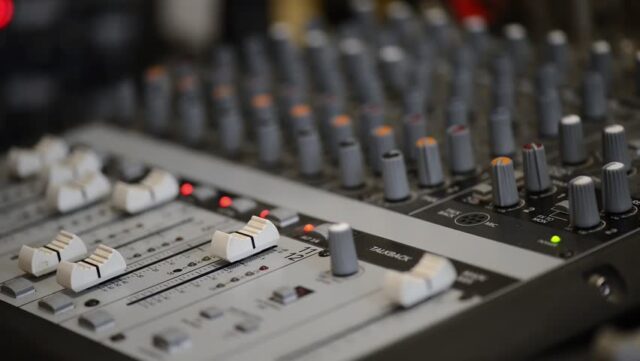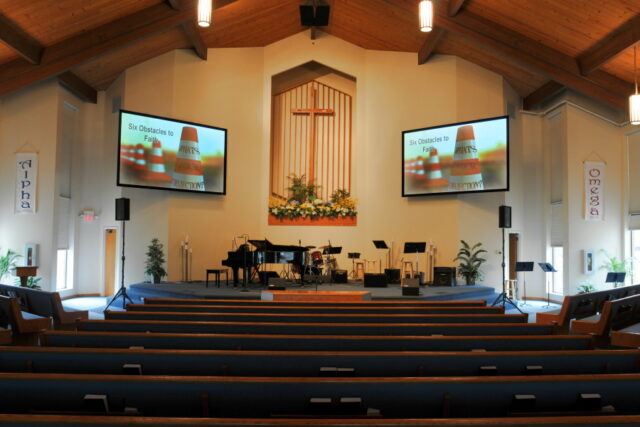
Setting up the sound system in any room doesn’t come naturally to anyone, rather someone who had previous experience with sound systems needs to set it up. But things change a bit when it comes to setting a sound system in a church.
The problem with church rooms is that they are huge with high ceilings and large surface areas, which means that these rooms need to have the proper equipment with the right arrangement so they can have a covered surface area and an overall good sound system that can reach anyone in the room. You don’t need a professional to set it up for you; all you need to have is the right knowledge to guide you through the process.
4Plan It
It doesn’t matter whether you are entering the same room for a while or you have just seen it, you haven’t looked at the room as you should. When you are setting up a sound system for a room, you need to adopt a different look so you can have the proper assessment of it.
There are a lot of details that you need to take into consideration. For instance, you need to take accurate sizes of the church, the number of attendees, the number of performers, and the type of the event. After gathering all these vital details, you need to look for the right equipment that will facilitate the whole process for you. The final step in the planning process is picking out a quality brand that you can buy all your devices from.
3Choose the Right Microphones

One of the many devices that you will be buying is a microphone. But before you pick a random one off the shelf, you need to know which type of microphone you will be needing for your event. It will be much better for you if you read up about microphones before you start looking for one, sound experts at churchsoundtips.com, say that dynamic microphones are great for and type recording and performances.
This means that you will need to buy a dynamic microphone If you are going to use a microphone for singing performances. This microphone will give you high sound pressure while decreasing unwanted noises from the stage itself. But you are not going to be only using one microphone, which means that you have a lot of cables in the area. To avoid slips on stage, you can get a stage snake, which will contain all the cables from all the microphones that you will be using on stage.
2Select an Audio Mixer

The next thing you need to do is find the right mixer for your sound system. The important thing you need to remember is that you will be needing one channel for every performer, microphone, and instrument. Don’t worry though, if you don’t have enough channels, you can combine all your microphones, connect them to the stage snake then connect them to the mixer.
Another thing that you need to consider is the number of EQ settings, outputs, and effects. You will need to tailor the EQ settings and effects based on the size of the room. As for the outputs, you will only be needing two outputs.
1Connect Speakers and Monitors

Congratulations, you have reached the final step, all you need to do now is to connect your mixer to the speakers and monitors. However, before you start connecting it to the speakers, you need to know that there are two types of speakers, you can choose from. You can go with the active speaker, which has an amplifier that is already built-in, so you will directly connect it to the mixer.
But you can also go with the passive speaker, which doesn’t come with its amplifier and has a lot of cables that you will need to deal with. If you choose the active speaker then you will connect the cables directly to the mixer. However, if you pick the passive one, then you will connect the cables to the amplifier then to the mixer.
Setting up the sound system in the church can be daunting at first, but with the right kind of knowledge, you can do it. To make things easier for yourself, you need to have a plan before you start buying your equipment.
Take into consideration aspects such as the church’s size, height, and length. You will need to know the type of event that will be taking place as well as the number of attendees. The rest of your decisions will be based on these kinds of information.







